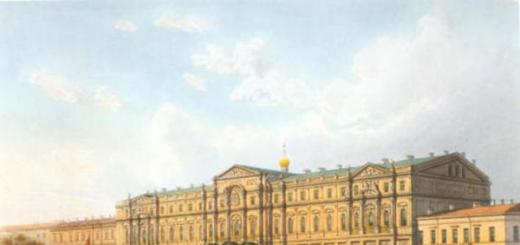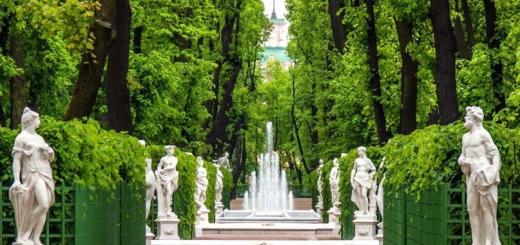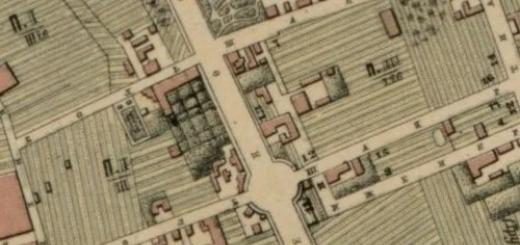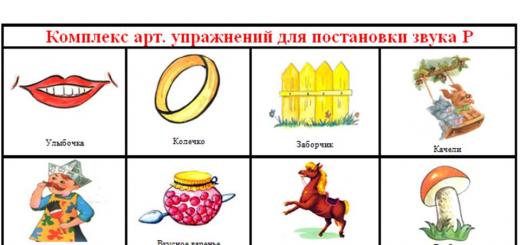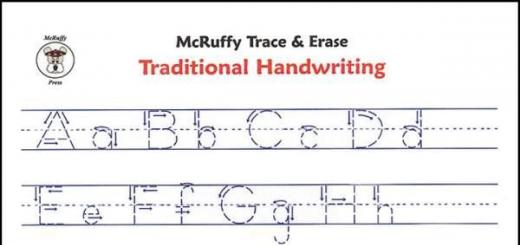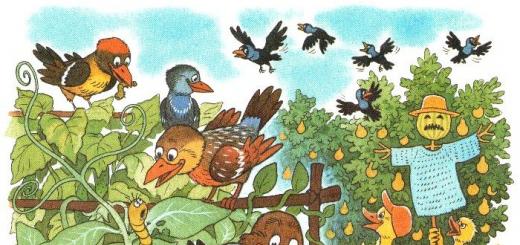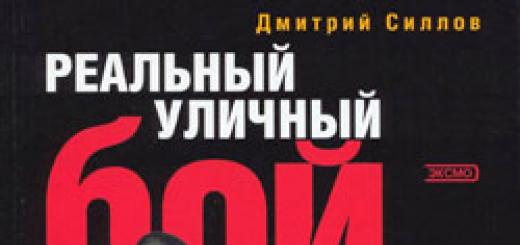Blok's biography is the life story of the great poet, whose work had a huge impact on Russian and world literature. Alexander was born into a noble family on November 28, 1880. His father was a lawyer, his mother was the daughter of the rector of a university in St. Petersburg. His parents' marriage fell apart before he was born. During the first years of his life, he was brought up in the family of his paternal grandfather.
Blok's biography contains many interesting facts. It is known that little Sasha wrote his first poem at the age of 5. It was filled with special poetry, which in the future was constantly present in his Serious work began at the age of 17.
After graduating from high school in 1898, Alexander entered St. Petersburg University at the Faculty of Law. His choice was made rather unconsciously, but over time, creativity took over, and after 3 years, he transferred to the Faculty of History and Philology, which had a Slavic-Russian department. He graduated from Alexander University in 1906.
Important in the life of the poet was 1901, when he met the poet A. Bely, who influenced the formation of his creative views. Later, these friendships brought many disappointments.
On August 17, 1903, the poet married L. Mendeleeva, the daughter of the greatest D. I. Mendeleev. There was practically no spiritual closeness in the relationship of this couple, which caused a long-term conflict. A. Bely intervened in them, carried away by the poet's wife and creating a situation that almost turned into a duel.
The year 1903 is also significant for the release of the poet's first collection of poems, which reflected the love experiences of the first happy months of married life. During this period, Pushkin A. and Solovyov Vl. had a considerable influence on the work of A. Blok.
The biography of Alexander Blok cannot be considered in isolation from his work, since it reflects the main events of his life. The first collection of poems was published in 1904, it was called Poems about a Beautiful Lady. Here the author expresses his ideas about idealism and divine wisdom. Poetry collections "City" and "Snow Mask" reflect the religious theme, which also worried the poet.
In 1909, Alexander traveled to Germany and Italy, as a result of which Poems about Italy appeared, recognized as the best in Russian poetry.
The block was called to military service in 1916. Then he returns to Petrograd after In 1917, Alexander participates in the work of the Cheka to investigate crimes committed under the tsarist regime. This is narrated by his book, published posthumously in 1921 - “ Last days imperial power."
short biography Blok contains many facts testifying to the subtlety of his nature, which was felt in everything. Even his aspirations about the fate of the Motherland are permeated with awe and tenderness. The poet expressed great fears about the future of Russia. The poet's illusions associated with the Bolshevik regime eventually collapsed. Initially, he optimistically accepted the revolution of 1917, refusing to emigrate, as Blok's biography tells us.
However, Alexander later becomes disappointed in the actions of the Bolsheviks, since they ran counter to the ideas of the poet and their promises. The unfinished work "Retribution" describes the political position of the poet, which he adhered to during the years of the revolution. It fully reflects the despair of their own delusions.
Nevertheless, he still had faith in the invincibility of Russia, which was to play an exceptional role for all mankind. This is confirmed by the biography of A. Blok and his works "Scythians" and "Motherland". Using gypsy folklore to convey his feelings in the work "Scythians", the poet fully reflected the intensity of human passions.
A brief biography of Blok, unfortunately, does not contain all the events of his life, but allows us to get acquainted with the most significant of them and with his the best works. One of them is the controversial and enigmatic 1920 poem "The Twelve". Here the author uses a fairly rigid narrative language to make it easier for the reader to imagine the events described.
I would like to note that Blok also left a noticeable mark in the history of the Russian theater, and his translations are noted for their high artistry and closeness to the originals.
07.08 in the morning in St. Petersburg in 1921 after a serious illness. He left behind a huge legacy in the form of immortal works.
Alexander Alexandrovich Blok. Photo from the passport. 1910s
"Poems about a beautiful lady"
In 1898, Alexander Blok entered the university and studied there for quite a long time, because he moved from the faculty of law to philology; therefore, he received his diploma only in 1906, when he was already a famous poet. He began writing poetry very early. In 1900 he was already an original poet, both in style and in substance. At first, his poems were not published. Only in 1903 were several poems published in Merezhkovsky's journal New way. In 1904, they came out as a separate book called Poems about a beautiful lady. Blok always insisted that his poetry could only be truly understood and appreciated by those who sympathized with his mysticism. This statement is especially true when we are talking about his first book. If the reader does not understand the mystical "background", the verses will seem to him just verbal music. To be understood, these verses must be interpreted. This, however, is not a very difficult task if one uses Blok's own article ABOUT state of the art Russian symbolism(1910) - his very important self-disclosure - and Andrei Bely's detailed commentary in his wonderful Memories of Blok.
Poems about a beautiful lady- a mystical "love story" with the Special, which Blok identified with the heroine Three visions Solovyov - Sophia, Divine wisdom, the female hypostasis of the Divine. Blok's friends - mystics - and he himself always insisted that these Poems is the most important part of his writings, and although the general reader may prefer the mighty poetry of his third volume, these early Poems are, of course, very interesting and biographically important. Despite the influence of Vladimir Solovyov (material) and Zinaida Gippius (metric form), they are quite original and stylistically strangely mature for a 20-22-year-old person. The main feature of this poetry is complete freedom from everything sensual and concrete. This is the vagueness of words, which acts on the unprepared reader just like verbal music. Like no other, this poetry answers Verlaine rule: " de la musique avant toute chose("music, music above all!"). There is nothing in the world plus vague et plus soluble dans l'air"("more vague and more soluble in the air") than this collection. Later in the play Stranger Blok forces the Poet (who is undoubtedly a self-parody) to read his poems to a sexual in a tavern, and he delivers his verdict: "It's incomprehensible, sir, but very refined, sir!" Apart from a few initiates, the attitude towards Blok of his then admirers was in many respects similar to the attitude of the sexual.
Block. Biography, lyrics. Video lesson
The further popularity of his early poetry (contained in the first volume of his works) was precisely due to the obsession with poetry, which would be as pure and free from content as music.
At first, Blok's poetry was appreciated only by a few. Critics either did not pay attention to it, or treated it with ridicule and indignation, which was the common lot of the Symbolists. They began to read Blok much later. But literary circles immediately understood the significance of the new poet: Bryusov and Merezhkovsky received him very warmly. The younger Symbolists went even further in their enthusiasm: two young Muscovites, Andrei Bely and Sergei Solovyov (son of MS Solovyov), saw in his poetry a message that was close to their own spiritual mood. Blok became for them a prophet and seer, almost the founder of a new religion. These young mystics with ardent faith expected a new religious revelation, and Blok's ethereal poetry seemed to them the Annunciation. new era. In their memories Bely describes the tense atmosphere of mystical expectation in which the young Bloks (the poet and his wife, L. D. Mendeleeva), himself and Sergei Solovyov lived in 1903-1904.
"Stranger"
But this did not last long. Poems about a beautiful lady were still being published, the blockists were in complete ecstasy, when all of a sudden Blok's visionary world changed dramatically. The “beautiful lady” refused her admirer. The world was empty for him, the skies were covered with clouds and darkened. Rejected by the mystical beloved, the poet turned to the earth. This turn made Blok more unhappy and probably the worst person than he was, but more of a poet. Only then did his poetry acquire universal interest and become understandable not only to a select few. She became more earthly, but at first his earth was not material either. His sky-fed style, upon first contact with harsh reality, immediately dematerialized it. His world in 1904-1906. - a veil of mirages thrown over more real, but invisible skies. His style, ethereal and purely musical, was perfect for depicting the fogs and mirages of Petersburg, an illusory city that disturbed the imagination of Gogol, Grigoriev, Dostoevsky. This romantic Petersburg, a dream that arises in the unreal hazy atmosphere of the northern Neva swamps, became the basis of Blok's poetry as soon as it touched the ground after its first mystical flights. The "beautiful lady" disappears from his poems. She is succeeded by the Stranger, also an immaterial, but passionate, ever-present vision, with which he is obsessed throughout the second volume (1904-1908). With particular clarity, she appears in the poet's most famous poem (perhaps after twelve the most famous), written in 1906, characterized by a combination of realistic irony with romantic lyricism. The poem begins with a grotesque-ironic depiction of a summer cottage near St. Petersburg. In this den of ebullient vulgarity, where "tried wits" walk with ladies and "drunks with rabbit eyes in vino veritas shouting, "the Stranger appears (see the full text and analysis of this poem).
... And every evening, at the appointed hour
(Is this just a dream?)
Maiden's camp, seized by silks,
In the foggy window moves.
And slowly, passing among the drunk,
Always without companions, alone,
Breathing in spirits and mists,
She sits by the window.
And breathe ancient beliefs
Her elastic silks
And a hat with mourning feathers
And in the rings a narrow hand.
And chained by a strange closeness,
I look behind the dark veil
And I see the enchanted shore
And the enchanted distance.
Deaf secrets are entrusted to me,
Someone's sun has been handed to me,
And all the souls of my bend
The tart wine pierced.
And ostrich feathers bowed
In my brain they sway
And bottomless blue eyes
Blooming on the far shore.
There is a treasure in my soul
And the key is entrusted only to me!
You're right, drunk monster!
I know: the truth is in wine.
Block. Lyrics. Second volume. Video lesson
"Bubbles of the Earth"
A whole series of charming poems belongs to the same period, where Blok demonstrates an unexpected gift of cozy and playful humor. It is named after a quote from Macbeth – Earth bubbles. These are poems about simple playful spirits living in fields and forests. Few Blok's poems won more sympathy for him than Swamp Popik, mysterious, mischievous, good-natured, created by his imagination, who, towering on a finger, stands on a bump
And silently pray
Raising your hat
For the stem that bends
For a sick animal paw,
And for the Pope.
Blok and revolution of 1905
Like most Symbolists, Blok welcomed revolution of 1905. He joined the mystical anarchists. Once he even carried a red flag. The degeneration of the revolution into anarchy and collapse increased his pessimism, and feelings of hopelessness and despondency took possession of his soul. His poetry has become forever the expression of the "fatal emptiness" (of which he speaks in 1912 poetry), familiar to many people of his generation. This "emptiness" is akin to the one experienced by Leonid Andreev. The difference is that Blok is a genius and a man of incommensurable culture, and that he knew a state of mystical bliss, which Andreev did not suspect.
Block Dramas
An impotent desire to return to the Radiant Presence from which he had been expelled, and bitter resentment at the way he was treated by the "Beautiful Lady", became the subject of his "lyrical dramas", written in 1906-1907. - booth And Strangers, which can be attributed to his earliest and most enchanting masterpieces. booth- harlequinade. It was delivered in 1907 and went on for quite a long time. On those who saw him, he made an unforgettable impression. It contains many of Blok's best lyrics, but in essence it is a satire, a parody, and, moreover, darkly blasphemous. This is a parody of Blok's own mysticism and a satire of his own hopes and expectations. His friends - Bely and Sergei Solovyov - took this not only as an insult to themselves, but also as an insult to their common faith in Sophia - Divine Wisdom. This caused his Moscow friends to move away from Blok, and the next period became a time of gloomy loneliness for him. For most readers, terrible pessimism booth hidden behind its lyrical charm and whimsical symbolism. But in fact it is one of the darkest and most blasphemous plays ever and anywhere written by a poet.
Analysis of the drama "The Stranger" - see a separate article on our website. Since then, Blok's work has been filled with wine, women and gypsy songs - and all this against the backdrop of passionate despair and hopeless longing for the forever lost vision of the "Beautiful Lady". Passionate and hopeless disappointment - such is now the atmosphere of Blok's poetry. Only occasionally is he pulled out of constant despondency by a whirlwind of earthly passion. Such a vortex was reflected in the cycle snow mask; this ecstatic, lyrical fugue was written in the early days of 1907.
The third volume of Blok's lyrics
Blok's genius reaches maturity by 1908. Poems written over the next eight years were included in the third volume, which, together with the poem Twelve is undoubtedly the largest of what has been created by a Russian poet in the last eighty years. Blok was not a man of great intelligence or great moral strength. He was not, in essence, a great master. His art is passive and involuntary. He is more a registrar of poetic experience than a builder of poetic edifices. What makes him great is the presence of a poetic spirit that overwhelms him, as if coming from other worlds. He himself described his creative process in one of his most remarkable poems - Painter(1913) as a completely passive state, very close to mystical ecstasy, as described by the great Western (Spanish and German) mystics. Ecstasy is preceded by a state of dreary boredom and prostration; then comes an inexplicable bliss from the wind blowing from other spheres, to which the poet surrenders limply and obediently. But ecstasy is hindered by the "creative mind", which forcibly encloses in the fetters of form the "light, good free bird" - the bird of inspiration; and when the work of art is ready, it is dead to the poet, and he again falls into his former state of devastated boredom.
Block. Lyrics. Third volume. Video lesson
In the third volume, Blok's style pulsates fuller and stronger than in earlier works. It is more intense and full-blooded. But, as in early works, it strongly depends on the subtlest, easiest features of language, sound, associations. Despondency and despair, expressed in a poem related to this time Dance of death, are characteristic of the majority of Blok's poems after 1907.
Blok's theme of Russia
But sometimes, for a while, it seems that Blok has discovered for himself some kind of ray of hope that will replace The Beautiful Lady - and this is love for Russia. It was a strange love, perfectly aware of the vile and low traits of the beloved, and yet sometimes reaching real paroxysms of passion. The image of Russia was identified in his imagination with the Stranger - the mysterious woman of his dreams - and with the passionate, bifurcated women of Dostoevsky: Nastasya Filippovna ( Idiot) and Grushenka ( Brothers Karamazov). Another symbol and mystical reflection of Russia is a blizzard, a blizzard, which in snow mask was a symbol of cold and burning storms of carnal passion and which becomes the main background of the poem Twelve. The Russian wind of passion is again associated with the gypsy choirs of Moscow and St. Petersburg. Even before Blok, many great Russian writers (including Derzhavin, Tolstoy and Leskov) knew the beauty and splendor of gypsy choirs. In the middle of the nineteenth century lived a brilliant and not fully manifested poet Apollon Grigoriev, whose soul was filled with gypsy poetry. He wrote several extraordinary songs that were appropriated by the gypsies, although they forgot the very name of Apollon Grigoriev. Blok practically discovered Grigoriev the poet (as a critic he was well known) and "raised him." He published a collection of Grigoriev's poems (1915), to which he wrote a preface - one of the few prose articles worthy of a great poet. In it, he nobly pays tribute to his forgotten predecessor.
Blok's love for Russia was expressed in an acute experience of her fate, sometimes reaching a truly prophetic gift. In this regard, the lyrical fugue On the Kulikovo field(1908) is especially noteworthy: it is full of gloomy, ominous forebodings of the coming disasters of 1914 and 1917. Another wonderful poem (written in August 1914) fully reveals this strange love for one's country. They begin with the words:
Sin shamelessly, shamelessly,
Lose count of nights and days
And, with a head of hop difficult,
Walk sideways to God's temple.
Yes, and such, my Russia,
You are dearer to me than all the edges.
It is impossible to tell in detail about all of Blok's poems written between 1908 and 1916. It will suffice to name a few unforgettable masterpieces, such as Humiliation(1911) - about the humiliation of corrupt love; Commander steps(1912), one of the finest retribution poems ever written; terrible cry of despair Voice from the choir(1914); And nightingale garden, in style "classical" and stricter than most of his lyrical poems, a symbolic poem that unexpectedly brings to mind another great symbolic poem - My life Chekhov.
"Retribution"
In addition to lyric poems, the third volume includes two larger works of the same time: a poem Retribution and lyrical tragedy Rose and Cross.
Retribution was started in 1910 under the impression of the death of his father. According to the plan, it was supposed to consist of three parts, but only the first was fully completed. In style, this is realism, an attempt to approach the method of Pushkin and Lermontov. This is the story of his father and himself, and Blok was going to create a thing of great significance by illustrating the laws of heredity and showing the gradual decay of the old regime in Russia. He did not succeed in this task, and on the whole the poem was not a success. However, there are strong and beautiful places in it. The beginning of the second chapter reveals a gift of broad historical vision, unexpected in Blok: this is a magnificent synthetic sketch of Russian life under Alexandra III, which could be quoted in all textbooks of Russian history.
In the same month that they were written Twelve(January 1918), Block wrote Scythians(see full text and analysis), a tensely rhetorical invective against Western peoples who do not want to make the peace proposed by the Bolsheviks. This is very eloquent, but not very clever, and in any case much lower in level than Twelve.
This was Blok's last poem. The new government, which valued its few intelligent allies, loaded Blok with work, and for three whole years he worked on all sorts of cultural and translation undertakings, which were led by Gorky and Lunacharsky. After twelve his revolutionary enthusiasm subsided and was replaced by passive despondency, where even the wind of inspiration did not penetrate. He tried to keep working on retribution but nothing came of it. He was dead tired and empty.
Unlike many other writers, he did not suffer from hunger and cold, because the Bolsheviks took care of him, but he was dead long before his death. This impression was formed by everyone who remembers Blok at that time. However, the attitude of the communist authorities towards him was far from always benevolent. In February 1919, Blok was arrested by the Petrograd Cheka on charges of counter-revolutionary conspiracy. A day later, after two long interrogations, Blok was nevertheless released, since Lunacharsky stood up for him. However, even these one and a half days of prison broke him. He died of heart disease on August 9, 1921. Twelve glorified him more than all the previous ones, but the leftist literary schools in last years Blok's life unanimously overthrew him. His death was the signal for his recognition as one of the greatest national poets.
That the block great poet, there can be no doubt. But with all his greatness, he is certainly an unhealthy, sickly poet, the greatest and most typical representative of a generation whose best sons were stricken with despair and, unable to overcome their pessimism, either fell into a dangerous and ambiguous mysticism, or found oblivion in a whirlwind of passions.
Among Russian lyrical poetry, the poems of Alexander Blok occupy a special, only belonging to him, outstanding place. Femininity, charm and beauty, a premonition of happiness - this is the main idea of his lyrics. Love for a woman is intertwined with love for the Motherland, Russia. I anticipate you. Years pass by - All in one guise I foresee You.
short biography
Alexander was born on November 28, 1880 in an intelligent St. Petersburg family. His father, Alexander Lvovich Blok, is a professor at Warsaw University. Mother, Alexandra Andreevna, the daughter of the rector of St. Petersburg University, was professionally engaged in translations. From early childhood, the boy spent more time in his grandfather's house, and spent all the summer months at the Beketov Shakhmatovo estate, in the Moscow region. Young Alexander experienced his first passion in 1897 at Sadovskaya, while at a resort in Germany. The feeling of first love turned into wonderful poems, which were included in the first poetic cycle of poems by Ante Lucem. After graduating from the Vvedensky gymnasium in St. Petersburg, in 1898 Blok first entered the law faculty of St. Petersburg University, and later transferred to the historical and philological department and specialized in the Slavic-Russian department.
In 1903, on August 30, the wedding of Alexander Blok and Lyubov Mendeleeva took place. The first years of marriage are accompanied by rough edges, disagreements and misunderstandings. Young spouses belong to the advanced, bohemian, youth. The need to obey the requirements inherent in one or another group of young writers, musicians, actors, to which Alexander Blok and Lyubov Mendeleev belong, repeatedly puts their family union on the verge of breaking. All this instability and uncleanliness of personal life will adversely affect the health of the poet. They will significantly shorten his earthly path, although in the history of Russian culture the name of Lyubov Dmitrievna will forever remain as a prototype of the Beautiful Lady, to whom the great poet dedicated one of the best love poems in Russian poetry.
Blok's creativity
While still at university, Blok began to publish his works in symbolist magazines and newspapers. After graduation, he leads the critical department in the Golden Fleece magazine. He constantly rotates in the most advanced literary and theatrical environment. Among his friends are A. Bely, Z. Gippius, S. Gorodetsky, V. Komissarzhevskaya, V. Meyerhold. He is fond of theater and writes the play "Balaganchik", staged by V. Meyerhold.
And the two revolutions significantly influenced not only the worldview of Blok the citizen, but also Blok the poet. He unequivocally declares that the Russian intelligentsia “can and must” work with the Bolsheviks. In January 1918, he published the famous poem “The Twelve” in the newspaper Znamya Truda, and a little later, the poem “Scythians”. The poem was written by him in almost two days, as a response to the demands of the Germans for the Brest-Litovsk peace. The power, strength of this poem is an example of a civic position, enhanced by the poet's talent and personal attitude to the concept of Russia and the Motherland. Poet and Citizen With his attitude to the new world and the new government, Blok drew a line between himself and the opposition writers. Gippius, Merezhkovsky, Sologub, Vyach. Ivanov, Akhmatova, Prishvin and others sharply condemned him. But the poet himself, after the arrest of the Cheka in 1919 and being interrogated for only two days, obviously realized his mistake. It was not for nothing that an entry appeared in his diary that under the yoke of violence, the human conscience falls silent.
In 1921, at an evening dedicated to memory, Alexander Lvovich spoke openly about the attempts of the new mob to shut the mouth of true culture and deprive the artist of freedom. This speech and poem Pushkin House, can be considered his artistic testament. moral depression, soul emptiness intensify heart disease in April 1921, and in August 1921 Blok died.
Date of birth: November 28, 1880
Date of death: August 7, 1921
Place of birth: St. Petersburg
Alexander Alexandrovich Blok- poet, Blok A.A.- one of the brightest representatives Silver Age.
Childhood
The father of the future poet, Alexander Lvovich, was engaged in jurisprudence. Mother, Alexandra Andreevna, was the daughter of the rector of the University of St. Petersburg. When little Sasha was only nine years old, his mother left his father, and gave preference to the Guards officer Kublitz-Piottukh. Since then, the poet's childhood was spent in the Grenada barracks, located not far from St. Petersburg.
Education
At the age of nine, Blok entered the Vvedensky gymnasium, after which he studied law at St. Petersburg University. True, after studying three courses, he is transferred to the Faculty of History and Philology.
creative way
Little Sasha became interested in poetry quite early. Already at the beginning of the twentieth century, he creates a surprisingly lyrical and musical cycle "Poems about the Beautiful Lady". In many ways, in its melodiousness, it even resembles romances.
But the poet does not stop there. His further work, in fact, is the transformation of personal views on the changes that are taking place around. In the cycle "City" we can see a number of sharp social problems, and in the "Snow Mask" - the problems of religion. " scary world"shows the author's views on the horrors of life, and the theme of punishment is very well disclosed in his works such as "Yambs" and "Retribution". About the image Russian Empire can be read in Rodina.
After his father dies, the poet decides to go to Italy with his wife. There he writes simply magical works, for which he is invited to become a member of the literary society "Academy". In this society there were such famous representatives of the Silver Age as Ivanov, Bryusov, Annensky.
From childhood, Alexander Alexandrovich was fond of the theater. In 1912 he even wrote the drama The Rose and the Cross. She incredibly impressed Nemirovich-Danchenko and Stanislavsky. But, unfortunately, it was never staged on the stage of the theater.
When the First World War began, Alexander was called up. Since 1916, he served in Belarus, in the engineering troops.
But the revolution in the poet caused a number of extremely contradictory feelings. On the one hand, he refused to emigrate, as many of his close acquaintances did, considering it a flight. On the other hand, he still could not accept everything that was happening around him inside himself. If you look at his work of that time, you can see that in many ways he supported the ideas of the Bolsheviks. Yes, and the new government, the young poet liked, and she began to actively use it. At first he was appointed to various positions, then they forced him to write a lot (even at a time when he himself did not want to). This attitude caused a serious breakdown in Blok's soul, and besides, because of this, the poet's health was shaken. Every day his health became more and more terrible.
In 1918, a very mysterious work "The Twelve" was published. The debate over this poem continues to this day. In the same year, Blok published a cycle of poems "Scythians", which becomes the final touch in his work. The author is exhausted and devastated, until his death he no longer wrote a single work.
In early 1919, Blok was arrested because he was suspected of an anti-Soviet conspiracy. Lunacharsky intercedes for him, and the poet is set free. But this event depresses the poet even more. A year later, his stepfather dies, and Blok takes his mother to live with him.
In 1921, during a meeting at the House of Writers, Blok delivered a speech "On the Appointment of a Poet." In the future, it will be turned into a piece of software.
In the early twenties Blok was broken even more than before. The constant cold and hunger, the eternal lack of money, too much physical exertion brought him to the appearance of serious heart problems, he began to develop asthma, scurvy appeared, and mental disorders began to appear. The poet urgently needed treatment, and in early spring he applied for a visa. He received permission, thanks to the fact that Gorky and Lunacharsky were trying to save him, but this happened only in the middle of summer, when it was too late. By that time, the poet had weakened so much that he was no longer able to go anywhere.
Personal life
From a young age, Alexander was a vulnerable and impressionable person. When he was 17 years old, he and his mother rested in Germany. There he met Ksenia Sadovskaya, who became his first, strong love. He dedicated more than one of his works to her.
Almost every summer, Blok traveled to Shakhmatovo, where his grandfather's estate was. Not far from the estate was the estate of the Mendeleevs. It was there that he met his future wife, the daughter of a famous chemist, Lyuba Mendeleeva. Their wedding took place in 1903. But this marriage cannot be called simple, each of the spouses had many hobbies on the side.
When they talk about Blok's personal life, in addition to his wife, they remember two more women for whom he had strong feelings. These are the actress Natalya Volokhova and the opera singer Andreeva-Delmas.
But by the end of his life, Blok received the greatest joy from relationships precisely in marriage. True, it did not last very long and ended with the tragic death of the poet.
Death
The poet died in his own Petrograd apartment on August 7, 1921. The official cause of death was valvular inflammation. Block was buried in the Church of the Resurrection of Christ. At first, he was buried at the Smolensk cemetery, but then he was reburied, this time at the Volkovskoye cemetery.
Important milestones in the life of Alexander Blok:
Born in 1880.
In 1889, a stepfather appeared in the life of the family.
From 1889 he studied at the Vvedensky gymnasium, from which he graduated in 1898.
The first serious love for K. Sadovskaya - 1897.
Since 1898, he studied at St. Petersburg University as a lawyer.
In 1901 he transferred to another faculty - historical and philological. Where he studied until 1903. In the same year, “Poems about the Beautiful Lady” were published.
1903 also marked a significant marriage to Lisa Mendeleeva.
In 1904, The City was published.
In 1907, the "Snow Mask" appears.
From 1907 to 1913 - "Retribution".
The Yambs were published from 1907 to 1914.
Cycle "Motherland" also from 1907 to 1916.
In 1908, The Terrible World begins to appear, and continues until 1916.
In 1909, his own father died. After that, the poet decides to leave for Italy with his wife for some time.
In 1911 travels to France.
His drama The Rose and the Cross comes out in 1912.
In 1913 he made another trip to France.
During the First World War, since 1916 he served in Belarus.
In 1918 his latest works poem "The Twelve" and "Scythians".
Suspicion of activities against the new government and arrest - 1919.
In 1920, his stepfather died.
In 1921 the last public speaking with a speech "On the Appointment of a Poet". Death.
The main achievements of the poet Alexander Blok:
It was his work that could end the poetic nineteenth century and begin the twentieth. It successfully combines classic motifs and the latest trends.
On the example of his own work, he showed an in-depth concept of symbolism.
All his work can be viewed as one huge cycle, such a grandiose poem in which you can follow the evolution of all the images, and how the poet sees them.
Interesting facts from the biography of Alexander Blok:
Blok made his first attempts to write poetry at the age of five.
Asteroid 2540 was named after him.
Blok's wife was not faithful to her husband. She often had affairs on the side. One of the most memorable is an affair with A. Bely. The poet was even going to challenge him to a duel, but his wife found the strength and left her lover. Alexander loved her very much and, in spite of everything, was glad that she had returned. Elizabeth also had an affair with Davidovsky, from whom she gave birth to a child. But shortly after birth, he died.
Block's mother and his wife could never get along and find mutual language.
Lines from his famous poem "Night, street, lamp, pharmacy" have become a real monument in the city of Leiden. They were applied to one of the buildings of the city, as part of the "Wall poems".
◊ The rating is calculated based on the points accrued in the last week
◊ Points are awarded for:
⇒ visiting pages dedicated to the star
⇒ vote for a star
⇒ star commenting
Biography, life story of Alexander Alexandrovich Blok
The poet Blok was born in St. Petersburg in 1880 on November 16, he was the son of a law professor. Blok's mother divorced her husband immediately after the birth of the boy. The child was brought up in the family of his grandfather, who was the rector of St. Petersburg University, Beketov. Beketov Alexander Nikolaevich was a botanist by education. Mother married a second time, the family settled in the Grenadier barracks, as her stepfather was a guards officer. His surname was Kublitsky-Piottuch. Blok successfully graduated from the gymnasium and entered St. Petersburg University to study at the Faculty of Law. Soon he realized that his interests were far from legal science and transferred to the Faculty of Philology, to the Slavic-Russian department. Alexander managed to study law for three years before he became interested in philosophy and poetry.
The acquaintance with his future wife took place within the walls of the university, she was the daughter of the famous Mendeleev, a chemist. The young couple got married in 1903. Block was in love with his wife. It was a rare feeling in strength, which is not given to everyone. Blok's first love also left a deep imprint on his soul and poetry. The poet experienced his first love in his gymnasium years at a resort in Baden-Baden, where the family rested in 1897. By 1901, the poet had already written many poems, these were lyrics about love, poems about nature. Blok's poetry was built on the idealistic ideas of Plato's philosophy, it was full of vague forebodings, allusions and allegories. In poetry there was an unreal world of higher ideas, it was something sublime.
Relations with his wife were controversial and very difficult, since there was almost no physical closeness between them. At this time, Blok became close to the Symbolists. There were two circles of symbolists - St. Petersburg and Moscow. In the first, Zinaida Gippius and Merezhkovsky reigned, in the second, in Moscow, Bryusov was the main figure. Alexander became close to the Moscow circle of admirers of the philosophy of Vl. Solovyov, Andrei Bely stood out among them. Bely was then an aspiring prose writer and poet, a theoretician and connoisseur of new literature and new art. Andrei Bely's group enthusiastically greeted Blok's poems. The publishing house of the Symbolists published the book "Poems about the Beautiful Lady". Blok's wife became the subject of Andrei Bely's love, but he was rejected. Nevertheless, family relationships became even more tense.
CONTINUED BELOW
The block began to gradually move away from the symbolists as early as 1905-1907, during the revolution. He turned to civil themes, at this time he wrote a drama for the Meyerhold Theater called "Balaganchik". During the period of war and revolution, Blok wrote many works in which he tried to comprehend the historical path of Russia from the point of view of the worldview of symbolism. Gradually, catastrophic motives began to grow in his work, he realized that artistic language Symbolists are alien to him. Blok accepted the revolution as an element of purification, but no one understood and accepted his images. Blok became a professional writer approximately in the years 1906-1908, when books began to appear one after another, but from that time a discord with symbolism was also determined. He finally embarked on his own path in literature, drawing conclusions from his reflections and doubts.
There was more than one woman in Blok's life who influenced his poetry. Each period of biography became poetry. The history of the appearance of the cycle "Carmen" is connected with a feeling for Love Alexandrovna Delmas. Delmas was her stage name, after her mother's last name. Her real name was Tishinskaya. It was a famous singer who graduated from the St. Petersburg Conservatory. She sang romances to Blok's words at the Tenishevsky School, when everyone noticed that Blok and Delmas were amazingly suited to each other. Their feeling was "terribly serious." She was a dazzling woman, but was she beautiful? Blok had a peculiar idea of female beauty; in fact, she was no longer a young, overweight woman. The cycles "Carmen", "Harp and Violin", "Gray Morning", the poem "The Nightingale Garden", which Blok completed in 1915, were dedicated to her.
Having made interesting trips abroad, Blok published a cycle of the best poems in Russian poetry about Italy and many other wonderful works.
In the summer of 1916, Blok was drafted into the army, where he found information about February Revolution 1917. When the poet returned to Petrograd, he began to take part in the investigation of the crimes of the tsarist regime as part of the Extraordinary Commission. His book on these investigations was published posthumously. The last short creative upsurge occurred in 1918, when the poems "The Twelve" and "Scythians" were published. No one accepted and understood the image of Christ, the poem was perceived very differently. The revolutionaries reacted more condescendingly, but the opponents of the revolution announced a real boycott to the poet.
In 1919, Blok was accused of an anti-Soviet conspiracy. He was interrogated for a long time, but Lunacharsky stood up. The poet was released, he began to try to cooperate with the authorities. Soon Blok felt the onset of a crisis of creativity, he realized that places in new literature he won't have. His physical condition deteriorated greatly, he was on the verge of exhaustion, on the verge of life and death. He refused to Lately from creativity and died of inflammation of the heart valves on August 7, 1921.
